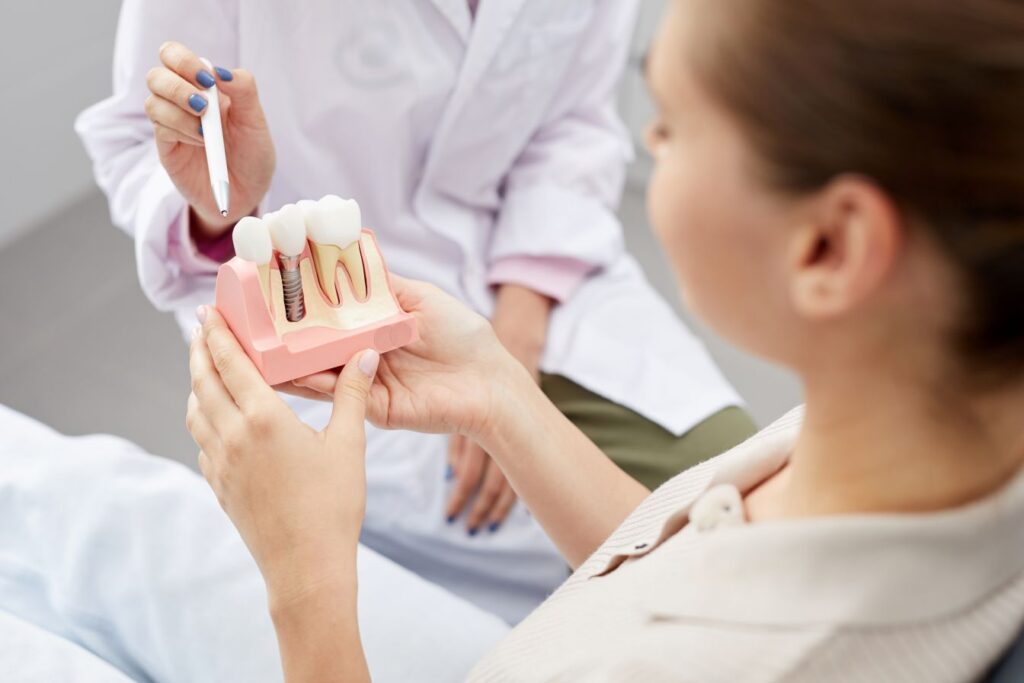
Your dental implants were designed to permanently replace missing teeth, allowing you to once again eat a full diet without fear of them slipping out or needing to remove or replace your them for cleaning or due to age-related wear. But though they boast an impressive 95 percent success rate, dental implants can still occasionally fail. Here’s how to recognize the signs of dental implant failure, and what you can do to prevent it.
Warning Signs of Dental Implant Failure
Dental implant failure can feel a lot like natural tooth loss, in that it often starts with gum tenderness, jaw pain, and of course, a loose or wiggly implant. Your dental implants are meant to stay in the jawbone permanently, so they should not move at all. If you notice any movement, it’s important to act quickly!
Treating a Failed Implant
If you notice any of the above symptoms around your implant site, it is imperative that you contact your dentist as soon as possible. You will need to be X-rayed, and if it is determined that your implant is failing, your dentist can remove it under local anesthesia. If it is determined that your bone is still intact, you will most likely not need a bone graft. If you do need a bone graft, this must be done before the implant can be reattached.
Preventing Dental Implant Failure
There are many ways to help prevent dental implant failure; however, be aware that no matter how well you care for them, there are some dental implants that simply may not be successful. Still, you can vastly improve your odds by doing the following:
- Do not smoke or use tobacco products.
- Stick to softer foods when you first get your dental implants until they have had a chance to properly fuse with your jawbone.
- Maintain excellent oral hygiene, including brushing and flossing regularly.
- If you grind your teeth (bruxism) speak to your dentist about getting a custom bite-guard made to reduce wear and pressure on your teeth and implants.
- Follow the post-op instructions from your dentist as closely as possible.
- If you notice any changes in your oral health or at the site of your dental implant, contact your dentist as soon as you can.
Remember, dental implant failure is very rare, but it still can happen, especially if you’re not careful. Follow these tips for preventing yours from failing, and if you notice any changes in your implant site or oral health, notify your dentist at once.
About Our Practice
At South Ridge Dental, Dr. Ryan Shaffer and Dr. Steven Shaffer are committed to your dental implant success. Not only do we place new dental implants, but we also provide dental implant salvage to help protect your smile and your restorations. If you are noticing anything abnormal in regard to your dental implants, please reach out to us as soon as possible for help by visiting our website, or for a faster response, please call us directly at 402-423-1616.
